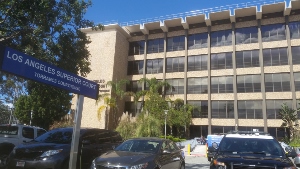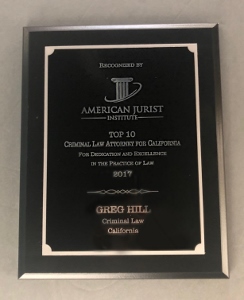Our office often hears clients describe how a police officer made a traffic stop of them because they “look like a gang banger” or “because the cop knows me” or “because the police officer just wanted to check out my girlfriend, who was a passenger.” Our client may claim the officer planted evidence. Or our client may say the police lied in the police report or coerced a confession.
About This Article Briefly: A Pitchess motion is aimed at finding impeachment material to undermine the credibility of a police officer, based on prior misconduct within the last five years. It is best reserved for cases when a jury must adjudge the credibility of a police officer’s claims.
This is often difficult to prove, but if the police officer really is a “bad cop,” a defendant may ask the judge to order the production of the officer’s confidential personnel file. This may allow defendant to discover the officer has a history of using excessive force, acting upon ethnic or racial bias, falsifying information or planting evidence or coercing a confession (
People v. Memro (1985) 38 Cal.3d 658, 679, 214 Cal.Rptr. 832).
Pitchess v. Superior Court (1974) 11 Cal.3d 531, 113 Cal.Rptr. 897 is the case wherein the California Supreme Court made such disclosure permissible. When someone mentions a “
Pitchess Motion,” this is the case being described, although the case is now partially codified at Evidence Code §§ 1043 to 1046, wherein certain required procedures are set forth for requesting disclosure of personnel records of police officers. Such
Pitchess disclosures are also available to defendants in juvenile proceedings (
City of San Jose v. Superior Court (1993) 5 Cal.4th 47, 11 Cal.Rptr.2d 73), even though juvenile proceedings are technically civil in character.

To obtain the police officer’s records, defendant must establish good cause for the disclosure. This is most often established through a declaration alleging specific facts showing why certain records are material to the subject matter in the pending litigation. Evidence Code § 1043(b)(3). A person alleging “grandiose conspiracies” to frame a defendant may not show the misconduct could or might have occurred. Also, it is not enough to just claim that police are lying. There must be an explanation for the events as defendant claims to challenge the police report.
The person signing the declaration must have a reasonable belief that the government agency at issue has the records. The motion then must be personally served on the government agency (not its lawyer) sixteen court days before the hearing and, if served by mail, five calendar days must be added. It merits mention that the prosecution need not see the whole of the motion. The prosecution only needs notice that the hearing will take place. The prosecutor is usually not a party to oppose the motion. Instead, it is the police agency.

However, the prosecution 1) has a duty to seek out
Brady evidence (
Brady evidence is evidence which tends to exonerate or help the defense) 2) the prosecutors can directly access peace officer personnel files (Penal Code § 832.7) to search them for
Brady material and 3) that the prosecutor must file its own
Pitchess motion in order to get court permission to disclose the
Brady information it finds in those personnel files.
People v. Superior Court (Johnson) (A140767) (August 12, 2014, 1st District Court of Appeal). The court makes it clear that the DA has to make the initial
Brady inquiry and cannot shift that duty to the trial court.
If the judge finds that good cause exists, it must hold an in camera (off the record) proceeding to determine “if the scenario of alleged officer misconduct could or might have occurred.”
Warrick v. Superior Court (2005) 35 Cal.4th 1011, 1016, 29 Cal.Rptr.3d 2.
If the judge orders the production of the requested personnel records, documents within such records may show, for example, that the officer had been disciplined for or accused of planting evidence in prior case(s). This prior history can make defendant’s claim of similar misconduct more credible. Likewise, if the police officer has a history of using excessive force against African Americans, for example, and defendant in this case is African American and was severely beaten by the officer at issue, without provocation, such evidence may narrow the issues and lead to a plea bargain that is fair.
For more information about arrests in general, click on the following articles:
- What Is Resisting Arrest under Penal Code § 148 (a) (1)?
- What Is Resisting Arrest under Penal Code § 69?
- Does Admitting to Having Marijuana Make a Search Legal?
Contact Greg Hill & Associates

